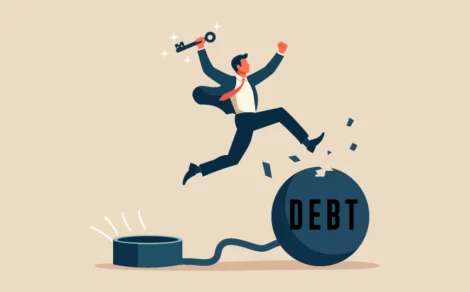Investing involves both psychology and numbers. Market trends, valuations, and economic indicators are important, but human emotions influence how investors respond to financial risks. Loss aversion is a key bias that affects investment decisions. It can cause irrational choices, leading to missed opportunities or unnecessary losses.
This article will discuss loss aversion in investing, its impact on financial decisions, and strategies to overcome this bias.
Understanding Loss Aversion in Investing
Loss aversion is a bias where losing feels twice as bad as gaining feels good. This concept was popularised by psychologists, Daniel Kahneman and Tversky. The psychology of investing is a key principle that explains why investors react emotionally to financial losses. For example, losing 100 affects investors way more than gaining 100 at the same time. This can cause investors to hold onto losing investments too long or sell winning investments too soon, affecting portfolio performance.
Real-World Examples of Loss Aversion in Action
Loss aversion’s impact can be illustrated by examining these two real-world scenarios:
-
The Dot Com Bubble
In the late 1990s, investors invested heavily in tech stocks due to FOMO. When the bubble burst in 2000, they held onto their falling stocks, hoping for a recovery, but their portfolios continued to decline.
-
The 2008 Financial Crisis
During the 2008 crisis, many investors panicked and sold their holdings at low prices. Those who held onto their investments faced significant losses due to fear of losing more. On the other hand, investors who remained calm and focused on the long term were able to recover their losses and even achieve growth.
How Loss Aversion Leads to Bad Investment Decisions?
Loss aversion, a concept from behavioural finance, makes investors fear losses more than they enjoy gains. This bias affects investors in various ways, leading to suboptimal decisions like:
-
Holding onto Losing Investments Too Long (The Disposition Effect)
Investors tend to keep assets that are not performing well to avoid losing funds, in the hope that the assets will improve in the future. This behaviour is called the disposition effect, discovered by Hersh Shefrin and Meir Statman in 1985. It is one of the common investor biases that causes individuals to make emotional rather than rational financial choices. They observed that people tend to sell assets that have gained value and hold onto those that have lost value because they want to avoid the regret of making a loss.
-
Selling Winners Too Early
Investors may sell profitable investments early to secure gains due to the fear of losing them. This can limit long-term returns. The disposition effect plays a role in this behaviour, as investors prefer the satisfaction of gains over the regret of future losses.
-
Overreacting to Market Volatility
Loss-averse investors tend to panic in market downturns. They sell investments to avoid more losses, even if the downturn is temporary. This results in selling at low points and missing recoveries. A good example is the 2008 financial crisis, where panic selling heavily affected market stability.
-
Avoiding Risky But Profitable Investments
Investors avoid high short-term risks due to fear of losses, missing out on potential long-term gains. This cautious strategy may result in lower returns as they overlook opportunities that could yield substantial profits in the long run despite short-term ups and downs.
-
Not Diversifying Investments
Loss aversion may lead investors to avoid diversifying their assets and stick to what they know, fearing the risks of unfamiliar investments. This limited diversification can make them more vulnerable to downturns in specific sectors and limit potential gains from other asset classes. For example, focusing only on domestic stocks can cause an investor to miss out on international growth opportunities, which could impact their portfolio’s performance.
How to Overcome Loss Aversion in Investing?
You need awareness, discipline, and a strategic approach to overcome loss aversion. Here are some practical ways to counter this bias:
- Focus on Long-term Investing: To combat loss aversion, focus on long-term goals instead of short-term market changes. By looking ahead, you can minimise the emotional impact of temporary losses and prevent impulsive decisions.
- Diversify Your Portfolio: Diversification is important for investing. It involves spreading investments across various assets to reduce the impact of losses. This strategy minimises risk and helps stay calm during market fluctuations.
-
- Set Clear Investment Rules: Predefined rules for buying and selling investments can prevent emotional decisions. For instance, you can sell an investment if it decreases by a specific percentage or rebalance your portfolio regularly. Following these rules can help you avoid letting loss aversion influence your decisions.
- Focus on the Big Picture: Focus on your portfolio’s overall performance rather than individual gains and losses. One losing investment doesn’t determine your financial future. By looking at the big picture, you can make rational decisions that match your long-term goals.
-
- Educate Yourself About Behavioural Finance: By understanding investing psychology and behavioural financial mistakes, you can identify when loss aversion affects your decisions. Being aware of these tendencies helps you overcome them effectively.
- Work With Financial Advisor: A financial advisor offers an objective view and helps you stay disciplined in tough times. They can create a custom investment plan based on your risk tolerance and goals.
Wrapping Up
Loss aversion is a common bias among investors. It can lead to irrational decisions. To avoid this bias, investors should understand it and use practical strategies. These strategies help avoid emotional pitfalls, reduce risk, and maximise returns. The key is to have a long-term perspective, diversify wisely, use systematic investment approaches, and stay disciplined. By adopting the right mindset, investors can overcome loss aversion and make smarter, more profitable investment decisions.
Make smarter investment decisions with expert guidance. Connect with Torus Digital today and take control of your financial future!







